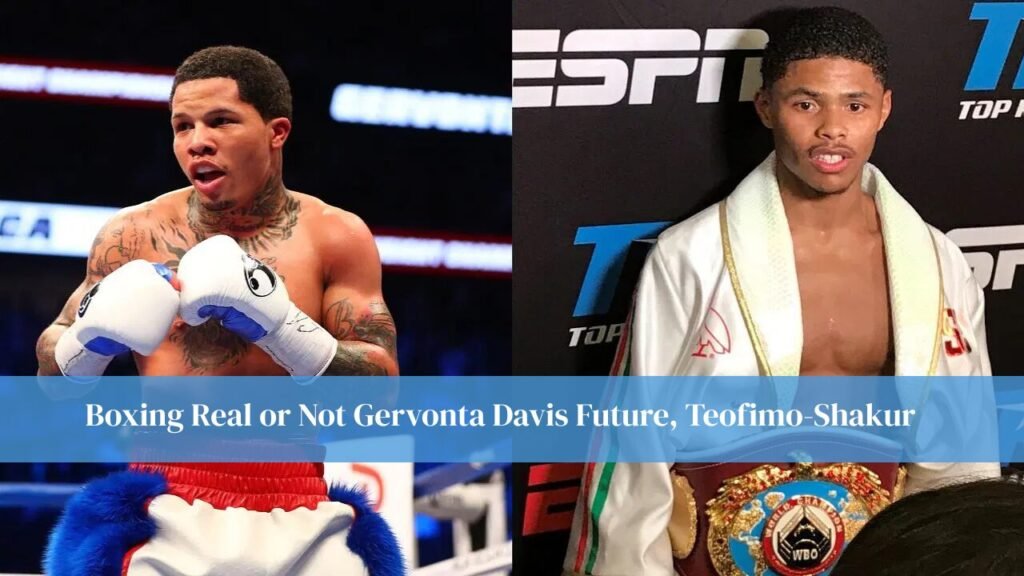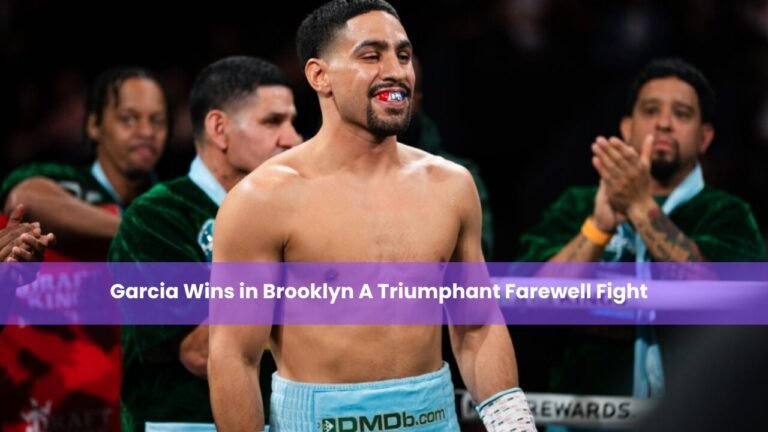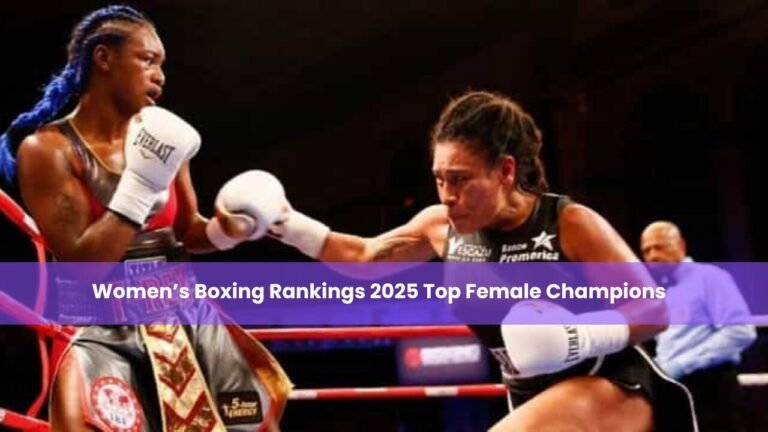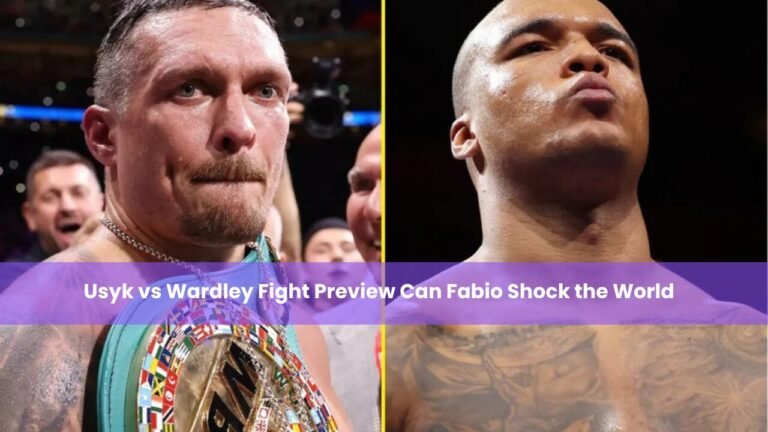Key Takeaways
- Boxing’s authenticity is often questioned due to controversies, business influence, and judging disputes.
- Top fighters like Gervonta Davis, Teofimo Lopez, and Shakur Stevenson showcase the sport’s genuine athleticism.
- The business side of boxing, including promoter negotiations and fragmented governing bodies, can delay high-profile matchups.
- Despite skepticism, rigorous training, real risks in the ring, and global fan engagement prove boxing’s legitimacy.
Boxing has long been celebrated as the “sweet science,” but it has also faced constant suspicion. For decades, fans, journalists, and even fighters have asked whether the sport is always authentic or whether politics, business deals, and questionable judging sometimes overshadow the purity of competition. The phrase boxing real or not is more than a casual question, it is a reflection of the trust gap between spectators and the sport’s institutions. Yet at its core, boxing remains one of the most real and brutal athletic contests in existence.
Today’s scene featuring names like Gervonta Davis, Teofimo Lopez, and Shakur Stevenson once again shines light on the debate. Each of these fighters represents a mix of athletic talent, business power, and global recognition. Their careers offer insight into how authentic boxing still is, and where doubts remain.
The Roots of the Question Boxing Real or Not
Skepticism about boxing is not new. In the early 20th century, certain fights were rumored to have been fixed by gambling interests. In later decades, controversies over scorecards and governing body politics only fueled public doubt. Despite these issues, the ring itself remained a space of undeniable reality. A fighter stepping into a twelve-round contest cannot fake conditioning, reflexes, or toughness. That truth is why boxing endures as both a spectacle and a legitimate sport.
Even when fans debate whether boxing is real or not, the physical risks and sacrifices made by athletes prove the sport’s core reality. Every punch thrown is real, every injury carries consequences, and every victory requires immense preparation.
Modern Concerns Business Versus Competition
The modern boxing industry balances between pure sport and entertainment business. Promoters often protect stars to maximize career longevity. Matchups are sometimes delayed or avoided because of negotiations over networks, sanctioning fees, or contractual disagreements. This makes fans question whether boxing is real or not.
However, when top fighters do meet, such as in the case of Gervonta Davis’s marquee bouts or the anticipated Teofimo vs Shakur matchup, the sport reveals its true nature. The punches, the knockouts, the unpredictability, and the drama remind audiences why boxing remains an irreplaceable part of sports culture.
Gervonta Davis and the Future of Boxing
Gervonta Davis, often referred to as “Tank,” stands as one of boxing’s most marketable stars. His combination of explosive knockout power, flashy style, and ability to draw crowds proves that he is both a fighter and a showman. When he enters the ring, the question of boxing real or not fades because his knockouts are undeniably authentic.
Still, debates persist about whether Davis is facing the very best opponents available or whether promoters strategically steer his career. This tension between sporting competition and business control is central to the larger discussion of authenticity in boxing. Davis’s future could either reinforce doubts or restore faith in boxing’s legitimacy, depending on how his next matchups unfold.
Teofimo Lopez Versus Shakur Stevenson
The possibility of Teofimo Lopez fighting Shakur Stevenson captures fan imagination. Lopez made global headlines when he upset Vasiliy Lomachenko, a victory that established his credibility. Stevenson, meanwhile, is celebrated for his defensive brilliance and technical dominance.
If these two clash, it could deliver exactly what fans crave: a high-level, competitive, and meaningful fight. Such a matchup could quiet the talk of boxing real or not, at least temporarily. When the best fight the best, the sport proves itself beyond dispute.
The challenge lies in negotiations. Boxing’s fragmented structure often prevents such fights from happening quickly. But if promoters align, Teofimo vs Shakur could become one of the defining bouts of this era.
The Shadow of Controversy
Controversy has always followed boxing. From famous heavyweight title fights decided by controversial scorecards to more recent split decisions in championship bouts, doubt persists. Each time a questionable outcome occurs, social media erupts with debates around boxing real or not.
Yet boxing thrives on drama. Fans remember not only the great knockouts but also the controversial nights. This mix of triumph and frustration fuels conversations and keeps boxing in the headlines, for better or worse.
The Global Popularity of Boxing
Despite questions of legitimacy, boxing remains hugely popular around the world. Events held in Las Vegas at venues like Allegiant Stadium attract massive crowds. Organizations such as the Indian Boxing Council continue to promote the sport locally, while platforms like FightZone ensure fans in Europe stay engaged.
Mainstream coverage on broadcasters like ESPN confirms that boxing continues to command attention. Whether fans wonder about boxing real or not, they continue to tune in, proving that the sport’s magnetic pull is stronger than doubt.
Training, Discipline, and the Reality of the Ring
No matter what happens with promoters or sanctioning bodies, training for boxing is brutally real. Fighters spend hours each day sparring, running, lifting, and studying strategy. Shops like ProBoxingStore and platforms such as Made4Fitness provide equipment and guidance, but no amount of gear can replace the physical effort needed to prepare for a bout.
When fighters enter the ring, fatigue, adrenaline, and courage collide. These elements cannot be staged, which is why boxing real or not ultimately favors the side of reality once the first punch is thrown.
Technology, Media, and the Perception of Boxing
Digital platforms have reshaped how boxing is consumed. Streaming services like Netflix produce documentaries revealing the behind-the-scenes grind of fighters. Social media platforms amplify both praise and criticism, allowing fans to voice their opinions on boxing real or not after every fight.
This transparency helps restore some trust, but it also magnifies controversies. Ultimately, the perception of authenticity is shaped as much by media coverage as by what happens inside the ropes.
The Role of Governing Bodies
Governing bodies both support and complicate boxing’s image. With multiple sanctioning organizations awarding titles, confusion often arises about who the true champion is. Critics argue this weakens the sport’s credibility, while others say it creates opportunities for more fighters to succeed.
Institutions like British Army Boxing showcase the sport at its most grassroots and authentic level, training athletes with discipline and honor. These programs emphasize that, beyond politics, boxing is a real and demanding craft.
The Emotional Connection of Fans
Perhaps the strongest evidence of boxing’s authenticity is the emotional connection fans feel. People remember the knockouts, the comebacks, the tears, and the celebrations. Even when they complain about bad judgment, their passion proves that boxing real or not remains a topic worth discussing because the sport still matters.
FAQs
Are professional boxing fights scripted?
No, professional fights are not scripted. Promoters may influence matchups, but when the bell rings, the punches, risks, and outcomes are real.
Why do people ask if boxing is real or not?
The question arises mainly after controversial decisions, promotional disputes, or mismatched bouts. While the business side creates doubt, the action in the ring is genuine.
Is Gervonta Davis a real champion?
Yes, Gervonta Davis is a legitimate champion. His knockout record and ability to dominate opponents confirm his place among boxing’s elite.
Will Teofimo Lopez really fight Shakur Stevenson?
It is possible, but negotiations and promoter interests will decide. If it happens, the fight would showcase authentic competition at the highest level.
Is boxing still popular worldwide?
Yes, boxing remains a global sport with millions of fans. From small gyms to packed stadiums, its appeal continues to grow across regions.
Conclusion
The question of whether boxing is real or not will never fully disappear. Business deals, promotional politics, and controversial scorecards will always create suspicion. But when fighters like Gervonta Davis, Teofimo Lopez, and Shakur Stevenson step into the ring, authenticity takes over. The sacrifices, the preparation, and the risks are undeniable. Boxing remains a sport where courage and skill decide destiny.
For more boxing updates, insights, and analysis, visit Boxing Essential.




